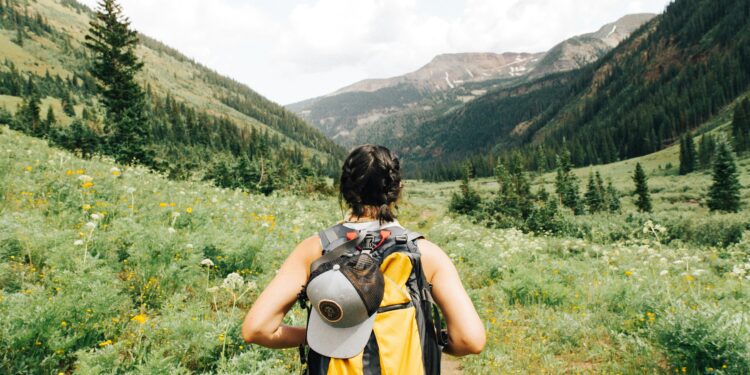Roam Free: Tips for Solo Travel in 2025

Solo travel offers individuals the freedom to craft personalized adventures, moving beyond the compromises of group travel. This independence cultivates self-discovery, as travelers navigate new environments and make autonomous decisions.
Solo travel fosters personal growth, prompting individuals to test their limits, demonstrate resilience, and embrace the unknown.
As Pico Iyer observed, “We travel, initially, to lose ourselves; and we travel, next, to find ourselves,” encapsulating solo travel’s transformative power.
Understanding Solo Travel
Solo travel involves independent journeys, undertaken without companions. It presents an opportunity to exercise complete autonomy in decision-making, unconstrained by the needs of others. This mode of travel allows individuals to dictate their own pace, itinerary, and priorities, whether lingering at a captivating market or a breathtaking vista.
The benefits of solo travel are numerous. It cultivates a profound sense of independence. It provides an unparalleled opportunity for self-discovery, encouraging individuals to tap into their inner resources and confront apprehensions. Solo travel offers unmatched flexibility.
Planning Your Solo Adventure
Meticulous planning is crucial for a successful and enjoyable solo journey. While spontaneity has its place, a well-defined framework enhances confidence and mitigates potential stress, particularly for first-time solo travelers.
Choosing a Destination
Given the world’s vastness, the array of options can be daunting. When selecting an initial solo destination, several factors merit consideration. Safety is paramount; prioritize locations with low crime rates and political stability. Ease of navigation is also key; opt for places with well-developed infrastructure and accessible public transportation. Language can present a significant consideration.
If one is not comfortable navigating in a foreign language, destinations where English is widely spoken, at least in tourist areas, may be preferable. Naturally, individual interests should guide the choice.
Does one gravitate towards bustling urban centers, tranquil beaches, or rugged landscapes? Finally, budgetary constraints will inevitably influence the destination and duration of the trip.
For those embarking on their first solo journey, the following destinations are frequently recommended:
- Portugal: Offers safety, affordability, ease of navigation, friendly locals, and scenic beauty.
- Costa Rica: Known for its welcoming atmosphere, rich biodiversity, and diverse activities.
- New Zealand: Provides a safe and stunning environment with ample outdoor adventures and a robust tourism infrastructure.
- Singapore: A modern, efficient, and exceptionally safe city with a vibrant culture and excellent public transportation.
- Ireland: Features friendly locals, captivating landscapes, and a rich cultural heritage, making it ideal for solo exploration.
Setting a Budget
Solo travel need not be financially prohibitive. Indeed, with careful planning, it can be quite affordable. Begin by establishing a realistic budget that encompasses all anticipated expenses, including transportation (flights, trains, buses), accommodation, sustenance, activities, visas, and miscellaneous costs.
The following tips can help contain costs:
- Travel during the off-season: Flights and lodging are often less expensive during less popular travel periods.
- Exercise date flexibility: Adjusting departure or arrival by a day or two can sometimes yield substantial savings.
- Consider budget-friendly accommodation: Hostels, guesthouses, and Airbnb can offer more economical alternatives to hotels.
- Prepare your own meals: Frequent restaurant dining can quickly deplete funds. Utilize kitchen facilities in hostels or apartments to prepare some meals.
- Use public transportation: Opt for buses, trains, or trams over costly taxis whenever feasible.
- Seek out free activities: Many cities offer complimentary walking tours, museums, parks, and other attractions.
Examples of free activities include:
- Exploring local parks and gardens.
- Visiting free museums and art galleries.
- Participating in complimentary walking tours.
- Hiking or biking.
- Relaxing on public beaches.
Accommodation Options
Accommodation choice significantly influences both budget and overall experience. Solo travelers can select from various options, each with distinct advantages and disadvantages:
Hostels: Popular among budget-conscious solo travelers, hostels provide dormitory-style rooms, often with shared bathrooms, and communal areas that facilitate social interaction.
- Pros: Affordability, social atmosphere, opportunities for interaction, and often organized activities.
- Cons: Limited privacy, potential for noise, and basic amenities.
Hotels: While offering greater privacy and comfort than hostels, hotels are typically more expensive.
- Pros: Private rooms, en-suite bathrooms, and amenities such as room service and Wi-Fi.
- Cons: Higher cost and a less social environment.
Guesthouses/Bed and Breakfasts: Guesthouses and B&Bs provide a more personalized and intimate experience, often at a lower price point than hotels.
- Pros: A comfortable and welcoming atmosphere, local management, and potential affordability.
- Cons: Fewer amenities than hotels and potentially limited hours or services.
Airbnb: Airbnb offers diverse options, ranging from private rooms in shared apartments to entire houses.
- Pros: Potential affordability, particularly for extended stays, unique and local experiences, and access to kitchen facilities.
- Cons: Variable quality, less predictability than hotels, and the need for more communication with hosts.
Essential Apps and Resources:
In the digital age, numerous apps and online resources can greatly simplify and enhance solo travel. The following are considered essential:
- Navigation: Google Maps, Maps.me (for offline use)
- Translation: Google Translate, iTranslate
- Safety: Noonlight, bSafe
- Booking: Booking.com, Hostelworld, Airbnb
- Social: Meetup, Couchsurfing
Embracing the Solo Experience
Solo travel, while liberating, may at times present challenges. However, these challenges also offer opportunities for profound personal growth and connection.
Overcoming Loneliness
While solitude is inherent in solo travel, loneliness need not be. Proactive engagement can foster meaningful connections with fellow travelers and locals. Consider the following strategies:
- Group tours and activities: Joining organized excursions not only provides structured exploration but also facilitates interaction with like-minded individuals.
- Hostel common areas: Hostels are designed to encourage social interaction, offering communal spaces where travelers can connect.
- Local events and festivals: Immersing oneself in local celebrations provides opportunities to meet residents and experience the culture firsthand.
- Language exchange programs: Participating in language exchange initiatives allows travelers to connect with locals while learning a new language.
- Online forums and communities: Engaging with online groups dedicated to solo travel can provide valuable advice and potential connections before and during a trip.
Connecting with Locals
Engaging with local communities enriches the travel experience, fostering cultural exchange and broadening perspectives. The following guidelines promote respectful and meaningful interaction:
- Learn basic phrases: Acquiring fundamental phrases in the local language demonstrates respect and facilitates simple communication.
- Respect local customs and traditions: Researching and adhering to local cultural norms prevents unintentional offenses and promotes harmonious interaction.
- Be approachable and open-minded: A friendly demeanor and a willingness to engage in conversation can pave the way for enriching encounters.
- Support local businesses: Patronizing local establishments, such as restaurants and shops, contributes to the local economy and provides opportunities to connect with residents.
- Participate in local activities: Attending local events or workshops offers immersive cultural experiences and facilitates interaction with community members.
Dealing with Challenges
Solo travel, while rewarding, may involve unexpected obstacles. Developing coping mechanisms and problem-solving skills is essential for navigating these situations:
- Embrace flexibility: Unexpected events, such as transportation delays or accommodation issues, may necessitate itinerary adjustments. Adapting to these changes with a positive attitude minimizes stress.
- Develop problem-solving skills: Solo travel inherently involves independent decision-making. Cultivating the ability to analyze situations, identify solutions, and take appropriate action is crucial.
- Seek assistance when needed: Do not hesitate to ask for help from locals, tourist information centers, or your embassy or consulate when facing difficulties.
- Learn from setbacks: Viewing challenges as learning opportunities fosters resilience and enhances future travel experiences.
- Practice self-compassion: Solo travel can be emotionally demanding. Acknowledging and addressing feelings of frustration or loneliness with kindness and understanding is essential for maintaining well-being.
Self-Discovery and Growth
Solo travel provides a unique opportunity for introspection and personal development. The following practices can help individuals maximize these benefits:
- Journaling: Recording thoughts, experiences, and reflections throughout the journey can provide valuable insights and facilitate self-awareness.
- Mindfulness: Practicing present-moment awareness enhances appreciation for the journey and fosters a deeper connection with oneself and the surroundings.
- Reflection: Taking time to contemplate the journey’s experiences, challenges, and triumphs allows for the integration of new knowledge and perspectives.
- Embracing discomfort: Stepping outside one’s comfort zone and confronting fears fosters resilience, adaptability, and a greater sense of self-efficacy.
- Connecting with values: Solo travel provides an opportunity to reflect on personal values and priorities, potentially leading to a realignment of one’s life path.
Capturing and Sharing Your Solo Travel Journey
Documenting and sharing your solo travel experiences can enhance your memories and inspire others.
Documenting Your Travels
- Photography: Capture the visual aspects of your journey through photography. Experiment with different styles and perspectives to create a unique record of your travels.
- Journaling: Maintain a travel journal to record your thoughts, feelings, and experiences. This can be a valuable tool for reflection and a cherished keepsake.
- Sketching and drawing: If you have artistic inclinations, consider sketching or drawing scenes from your travels. This can be a relaxing and rewarding way to document your experiences.
- Collecting souvenirs: Gather small, meaningful souvenirs that represent the places you visit. These items can serve as tangible reminders of your travels.
- Creating videos: Use video to capture the sounds, sights, and movement of your journey. Video can be a dynamic and engaging way to document your travels.
Staying Connected (or Disconnected):
- Managing technology use: While technology can be a valuable tool for solo travelers, it’s important to find a balance between staying connected and being present in the moment.
- Benefits of disconnection: Consider setting aside specific times to disconnect from technology and fully immerse yourself in your surroundings. This can enhance your sensory experience and promote mindfulness.
- Staying in touch: Let friends and family know your itinerary and check in with them periodically. This will provide peace of mind for both you and your loved ones.
- Using technology mindfully: When using technology, do so intentionally. Use it for navigation, translation, or to connect with people, but avoid excessive social media use or aimless browsing.
- Embracing the present: The goal of solo travel is to experience the world and connect with yourself. Don’t let technology distract you from this.
Sharing Your Story
Your solo travel experiences can inspire others to embark on their own adventures. Consider sharing your story through:
- Blogging: A travel blog can be a great way to document your journey in detail and connect with other travelers.
- Social media: Platforms like Instagram and Facebook allow you to share photos and updates with a wider audience.
- Public speaking: If you enjoy public speaking, consider sharing your experiences at travel events or workshops.
- Writing a book: If you have a compelling story to tell, consider writing a book about your solo travels.
- Simply sharing with friends and family: Don’t underestimate the power of sharing your experiences with the people you know. Your stories can inspire them to travel and broaden their horizons.
Your Solo Journey Awaits
Solo travel presents an unparalleled opportunity for personal growth, cultural immersion, and the forging of unforgettable memories. By embracing careful planning, prioritizing safety, and cultivating an open and adaptable mindset, individuals can confidently embark on transformative solo journeys.
The world awaits, and with it, the chance to discover new destinations and the depths of one’s capabilities and resilience.
Next Read: Sustainable Fashion Brands for Every Style and Budget in 2025








